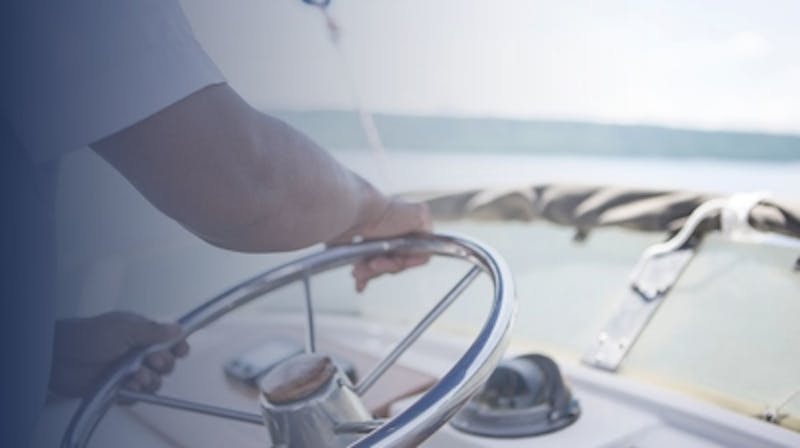
Operator Inattention
Boating requires the full attention of the operator, yet distractions are abundant. Onboard electronic devices, engaging conversations, and various activities can easily divert an operator's focus from the task at hand. The allure of a smartphone's ping or the excitement of friends gathered on deck can cause even the most diligent operators to lose sight of their surroundings. This lack of attention is not just a minor oversight; it's a primary contributor to maritime mishaps. When operators are not fully engaged in navigating their vessels, they miss crucial cues that could prevent an accident.
The consequences of inattention to the water can be dire. Without a proper lookout, operators may fail to notice other boats, swimmers, or obstacles in their path, leading to collisions or groundings. These incidents can result in significant property damage, severe injuries, or even fatalities. The responsibility of maintaining constant vigilance cannot be overstated; it's the cornerstone of safe boating practices and the first line of defense against the unpredictable nature of the water.
Inexperienced Boaters
Boating is an exhilarating experience, but without proper training, it can quickly become hazardous. Inexperienced boaters may lack the knowledge to handle challenging situations, making them more prone to making critical errors. Proper boating education is not just a recommendation; it's a necessity that equips individuals with the skills to navigate safely and respond to emergencies. Understanding maritime rules, recognizing weather patterns, and knowing how to operate boating equipment are all essential components of a well-rounded boating education.
Licensing and certification play a pivotal role in ensuring that boaters are adequately prepared to take the helm. Many states require boaters to complete safety courses and obtain a license before operating a vessel. These regulations are not bureaucratic red tape; they are measures put in place to protect everyone on the water. By promoting the importance of these credentials, we can help reduce the number of accidents caused by inexperienced operators and foster a safer boating community.
Excessive Speed
Speeding on the open water can be as dangerous as it is on the road. High-speed boating significantly increases the risk of accidents by shortening the operator's time to react to sudden changes in the environment or actions of other boaters. The thrill of slicing through the waves at high speeds must be balanced with an awareness of the potential consequences. At excessive speeds, maneuvers become more difficult, and stopping distances are greatly extended, leaving little room for error. Moreover, the impact of collisions at high speeds is often catastrophic, resulting in more severe damage and injuries.
Adhering to speed regulations is a critical aspect of safe boating. Waterways often have posted speed limits, especially in areas with high traffic or near the shore. These limits are not arbitrary; they are calculated to ensure the safety of all water users. Boaters should be familiar with these regulations and practice safe boating speeds at all times. By doing so, they not only protect themselves and their passengers but also contribute to the overall safety of the boating environment.
Alcohol Use
Alcohol and boating are a dangerous mix. Consuming alcohol while operating a boat impairs judgment, balance, and reaction times, much like it does when driving a car. Boating under the influence (BUI) is not only irresponsible, but it's also illegal. The legal consequences of BUI can include fines, license suspension, and even imprisonment. More importantly, the risk of causing an accident that could lead to injuries or fatalities is significantly increased when alcohol is involved. It's essential for boaters to understand that the relaxed atmosphere of a day on the water does not lessen the dangers of alcohol consumption.
Prevention strategies for alcohol-related boating accidents are straightforward yet vital. Having a designated operator who abstains from drinking ensures that the vessel is under the control of someone with unimpaired faculties. Planning ahead and making responsible choices can mean the difference between a memorable day on the water and a tragic one. It's also important for passengers to be aware of their own alcohol consumption, as their actions can affect the safety and operation of the boat.
Equipment Failure
Regular maintenance and pre-departure checks are the bedrock of boating safety when it comes to equipment. A well-maintained boat is less likely to experience mechanical failures that can lead to accidents. Boaters should perform routine inspections of their vessels, ensuring that all systems are functioning correctly before setting sail. This includes checking the engine, steering, and navigational equipment, as well as safety gear. Neglecting these checks can result in unexpected malfunctions at sea, where repairs are more complicated and help may be far away.
Common mechanical issues that can lead to accidents include engine failure, steering problems, and electrical malfunctions. These issues can leave boaters stranded or cause them to lose control of their vessel. To prevent such scenarios, it's crucial to address any signs of wear and tear immediately and replace faulty parts. Understanding the common points of failure and how to troubleshoot them can also be invaluable in preventing accidents caused by equipment malfunction.
Environmental Factors
Adverse weather conditions, such as fog, high winds, and storms, can turn a leisurely boating excursion into a perilous ordeal. Boaters must respect the power of nature and be prepared to face its challenges. Checking the weather forecast before departure and being aware of sudden changes in conditions are essential practices. Fog can reduce visibility to nearly zero, high winds can create treacherous waves, and storms can strike with little warning. Each of these scenarios demands a heightened level of caution and a readiness to take appropriate action to ensure the safety of all on board.
Navigational hazards are ever-present in the boating world, and awareness of one's surroundings is key to avoiding them. Shallow waters, rocks, and buoys are just a few of the environmental obstacles that can pose risks to boaters. Understanding how to read charts, use navigational aids, and recognize the signs of changing water depths can prevent groundings and collisions. It's also important to be aware of local hazards that may not be marked, such as submerged logs or sandbars. Knowledge of the local environment, coupled with attentive navigation, can greatly reduce the risk of accidents.
Overloading and Improper Loading
The way a boat is loaded can significantly impact its stability and handling. Overloading a boat with too many passengers or too much gear can cause it to sit too low in the water, making it susceptible to swamping or capsizing. Similarly, improper loading, where weight is not evenly distributed, can lead to listing or instability. Boaters must adhere to the manufacturer's recommended capacity limits and be mindful of how weight is distributed throughout the vessel. This is not just a matter of comfort; it's a critical safety consideration that can prevent disastrous outcomes.
There are guidelines for safe loading that, when followed, can help maintain a boat's stability and seaworthiness. These include balancing the load from bow to stern and port to starboard, securing all gear to prevent shifting, and adjusting for changes in load throughout the trip, such as fuel consumption or the movement of passengers. By taking the time to load the boat correctly and making adjustments as needed, boaters can ensure a safer and more enjoyable experience on the water.
Communication Failures
Effective communication is a cornerstone of maritime safety. Onboard communication systems, such as VHF radios, are vital for emergency situations and for coordinating with other vessels. A reliable means of communication can mean the difference between a quick rescue and a prolonged emergency. It's crucial for boaters to ensure that their communication devices are in working order and that they are familiar with how to use them. In an environment where conditions can change rapidly, being able to call for help or communicate with nearby boats can prevent accidents and save lives.
Maritime signals, signs, and communication protocols are designed to prevent misunderstandings that could lead to accidents. These include sound signals, visual signals such as flags, and standardized phrases used in radio communication. Boaters should be well-versed in these methods of communication to convey their intentions and understand those of others. Whether it's signaling a turn or indicating distress, the proper use of these signals is an essential part of safe boating practices.
Emergency Preparedness
Having the right safety gear on board and knowing the procedures to follow in case of an accident are fundamental aspects of emergency preparedness. Every boater should be equipped with life jackets for all passengers, fire extinguishers, signaling devices, and emergency rations. Additionally, understanding how to use this equipment and practicing emergency drills can greatly improve the chances of survival and rescue. It's not enough to have safety gear on board; boaters must be ready to act quickly and effectively in the face of danger.
Rescue and first aid knowledge are also critical components of emergency preparedness. In the event of an injury or accident, being able to administer basic first aid can be lifesaving. Knowing how to signal for help, whether through flares, radio calls, or other means, is equally important. Boaters should familiarize themselves with the rescue services available in their area and understand the best ways to facilitate their own rescue should the need arise.
Legal and Regulatory Compliance
Understanding and adhering to boating laws is not just about avoiding fines; it's about ensuring the safety of everyone on the water. Local, state, and federal regulations are in place to create a standardized set of rules that promote safe boating practices. These laws cover everything from speed limits to required safety equipment, and compliance is mandatory. Boaters should make it their responsibility to be informed about the regulations that apply to them and to follow them diligently. This knowledge is a powerful tool in preventing accidents and ensuring a safe boating environment.
The consequences of non-compliance with boating laws can be severe. Aside from the legal repercussions such as fines and penalties, non-compliance can lead to increased liability in the event of an accident. If an investigation reveals that a boater was not following the law, they may be held responsible for damages and injuries that occur. This can have long-lasting effects, both financially and legally. Therefore, it is in every boater's best interest to understand and abide by the regulations that govern their activities on the water.
Hire a Boating Accident Attorney at 'MAGGIO LAW
For those who are passionate about boating and wish to ensure their time on the water is as safe as possible, 'MAGGIO LAW is here to assist. Our expertise in personal injury law extends to maritime accidents, and we are committed to helping our clients navigate the complexities of boating accident cases. If you've been affected by a boating accident or simply want to learn more about safe boating practices, contact us today. Let us be your guide to a safer boating experience.
Call 'MAGGIO LAW now at (601) 265-6869 or reach out online.

